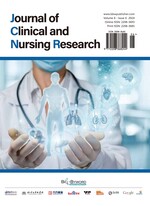Abstract
Objective: To evaluate the health effects of sugary beverage consumption among adolescent students in Guangxi. Methods: In three cities of Guangxi (Nanning, Liuzhou, and Guilin), we investigated the consumption of sugary beverages by distributing a self-administered Functional Assessment Questionnaire of Life Health System and a Dietary Behavior Questionnaire (this paper analyzes only the part of sugary beverage consumption) to adolescent students in four schools, aiming to find out the general health status of the students and also to assess the effects of sugary beverages on the functional system health of adolescent students. Results: A total of 953 adolescent students between the ages of 14 and 24 were surveyed. Among them, 46.17% consumed sugary beverages once a week; 37.46% consumed them 2–3 times; 11.52% consumed them more than 3 times; and 4.83% consumed them every day. The mean score of Functional Assessment Questionnaire of Life Health System was 32. There was a positive correlation between the frequency of consumption of sugary beverages and the overall systemic function assessment score (P < 0.05), and the rank of the total score elevated by 0.314 times for each increase in the level of consumption. Compared to those who drink sugary beverages at least once a day, drinking them once a week showed a statistically significant difference (P < 0.05). However, there was no statistically significant difference between drinking 2–3 times a week and more than 3 times a week (P > 0.05). The correlation between consuming sugary beverages once a week and 2–3 times a week and endocrine system scores was also statistically significant (P < 0.05). Conclusion: More than half of the students in the surveyed areas consumed sugary beverages two or more times a week, and the higher the frequency of consumption, the higher the scores of systemic function assessment. Health education on sugar reduction among adolescents should be strengthened.
References
Liu Q, Xiu L, Chen G, et al., 2021, Current Status of Research on the Effects of Sugar-Sweetened Beverages on Children’s and Adolescents’ Health and Consumption Control Strategies. Anhui Journal of Preventive Medicine, 27(04): 294–299.
Li D, Zhao L, Yu D, 2014, Research Progress on the Status of Added Sugar Intake and Its Relationship with Health. Health Research, 43(02): 328–331.
Yang Y, Zhang H, 2016, Dietary Guidelines for Chinese Residents (2016) Introduction. Journal of Nutrition, 38(03): 209–217.
Liu S, Yu D, Guo Q, et al., 2016, Analysis of the Intake Status and Changes of Foods Containing Added Sugars Among Chinese Residents from 2002 to 2012. Health Research, 45(03): 398–401.
State Council Information Office, 2020, Report on Nutrition and Chronic Disease Status of Chinese Residents (2020), viewed March 4, 2021, https://www.gov.cn/xinwen/2020-12/24/content_5572983.htm
Zhao L, Lai Y, Xiao C, et al., 2020, Research Progress on the Relationship Between Sugary Drinks and Childhood Obesity and Its Prevention and Control Policies. China School Health, 41(03): 468–470.
Hu H, Bua P, Shao X, et al., 2019, Relationship Between Consumption of Sugary Beverages and Overweight Obesity Among Students in Pudong New District, Shanghai. Occupation and Health, 35(06): 761–765.
Song Y, Deng Q, Yang M, et al., 2020, Correlation Between Beverage Consumption Behaviour and Overweight Obesity Among Secondary School Students in Shangrao. China School Health, 41(04): 591–594.
Bai Y, Xu Z, Niu X, et al., 2020, Analysis of the Association Between Overweight and Obesity and Intake of Sugar-Sweetened Beverages Among Junior High School Students in Shenyang. China School Health, 41(01): 113–116.
Epidemiology Group of the Chinese Society of Cardiology, Chinese Medical Association Cardiovascular Medicine Branch, Chinese Society of Geriatrics Cardiovascular Disease Committee, 2015, Guidelines for Clinical Diagnosis and Treatment of Abnormal Glucose Metabolism and Atherosclerotic Cardiovascular Disease. Chinese Journal of Cardiovascular Disease, 43(06): 488–506.
Liu X, Li Y, 2016, Abnormal Glucose Metabolism and Cardiovascular Disease. Chinese Journal of Diabetes, 8(03): 132–134.
Weng SQ, 2012, Sugar-Sweetened Beverages Increase the Risk of Cardiovascular Disease in Women. Cardiovascular Disease Prevention and Control Knowledge (Popular Science Edition), 2012(02): 53.
